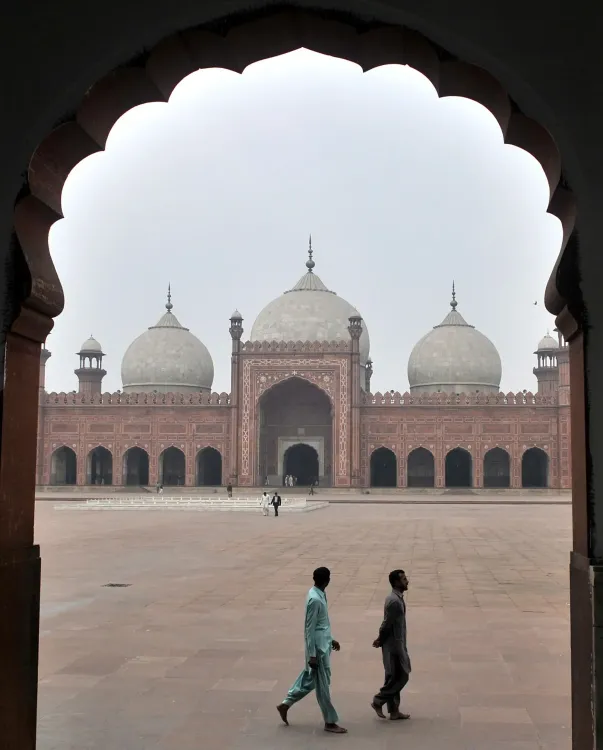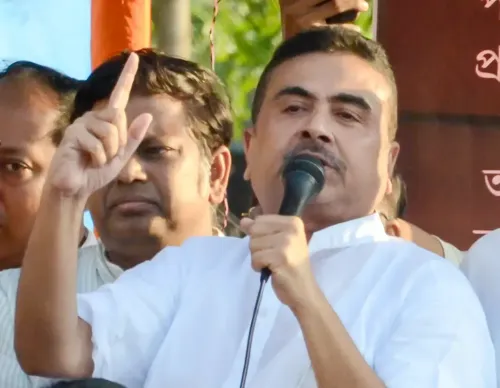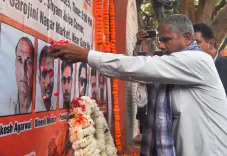Are Madrassas in Pakistan Fueling Sectarian Intolerance?

Synopsis
Key Takeaways
- Madrassas are increasingly associated with sectarian intolerance.
- Curricula are often biased, fostering sectarian identities.
- Violence linked to madrassas has resulted in numerous casualties.
- External funding and geopolitical factors complicate the issue.
- Reform is critical to prevent further violence and promote peace.
London, Nov 21 (NationPress) Madrassas in Pakistan have become pivotal in fostering sectarian intolerance, as selective ideologies are systematically ingrained in young minds, yielding graduates who openly express their sectarian affiliations, according to a recent report.
"Madrassas serve a crucial function in shaping religious and social identities in Pakistan. Nevertheless, their impact frequently delves into sectarian indoctrination. Educators and administrators have acknowledged that students are instructed to dismiss the beliefs and customs of other sects from a tender age," Sakariya Kareem noted in the UK-based publication for British Asians, Asian Lite.
The report highlighted individuals like Umer Bin Abdul Aziz, an Ahl‑e‑Hadith madrassa administrator in Peshawar, who denounces Barelvi and Shia doctrines, while others are linked with radical factions. This illustrates how madrassas function not only as centers of religious education but also as institutions that actively shape sectarian identities.
"The sectarian influence of madrassas goes beyond mere rhetoric. Law enforcement officials have confirmed that some of these institutions offer financial and logistical assistance to sectarian assassins and jihadist networks. The instance of Abdul Rahim Muslim Dost, a graduate of Al‑Jamiatul Asaria madrassa in Peshawar who later became a leader in ISIS's Pakistan‑Afghanistan chapter, exemplifies the shift from madrassa education to violent extremism. Such cases underscore how madrassas, disguised as religious teaching facilities, can radicalize students against sectarian adversaries and direct them toward extremist movements," the report indicated.
"Experts point towards the madrassa curriculum as a significant contributor to the formation of sectarian identities. Dr. Amir Tauseen, an authority on the Dars-e-Nizami curriculum, has observed that interpretations of Hadith vary among sectarian madrassas, embedding sectarian bias into the syllabus. Post-1947, the traditional Dars-e-Nizami curriculum fractured: Barelvi and Deobandi madrassas retained only a fraction of the original, while Shia, Ahl‑e‑Hadith, and Jamaat‑e‑Islami institutions replaced it almost entirely with sectarianized content. Even where overt sectarian elements are absent, students are gradually conditioned to see rival sects as heretical. This curricular divergence has entrenched sectarian identities across generations," it continued.
The sectarian intolerance fostered in madrassas has repeatedly incited violence in Pakistan. Nearly 20 individuals perished after longstanding tensions between Sunni and Shia communities reignited in the Kurram region in 2024. Sectarian conflicts have plagued Kurram for decades, often fueled by mobilization through local madrassas.
Similar occurrences have been documented previously, illustrating the persistence of this trend. The Shia Hazara community has endured assaults in Quetta, resulting in numerous fatalities. These attacks have revealed the transnational dimensions of sectarian violence, with funding and ideological support emanating from states concerned about Iran's expanding influence.
"Madrassas in Pakistan have become integral to the perpetuation of sectarian intolerance. Their proliferation, propelled by state support, foreign funding, and geopolitical tensions, has solidified sectarian identities and supplied manpower for militant factions. Although the traditional curriculum is conservative rather than revolutionary, external forces have transformed madrassas into breeding grounds for radicalism.
"The ramifications are severe: repeated sectarian massacres, intra-Sunni conflicts, and transnational terrorist connections. From Kurram to Karachi and Quetta to Punjab, madrassas have played a critical role in sustaining sectarian violence. Unless Pakistan addresses the structural and ideological underpinnings of madrassa education, through regulation, reform, and integration with contemporary curricula, the cycle of intolerance and violence will persist, undermining its stability and security," the report concluded.








